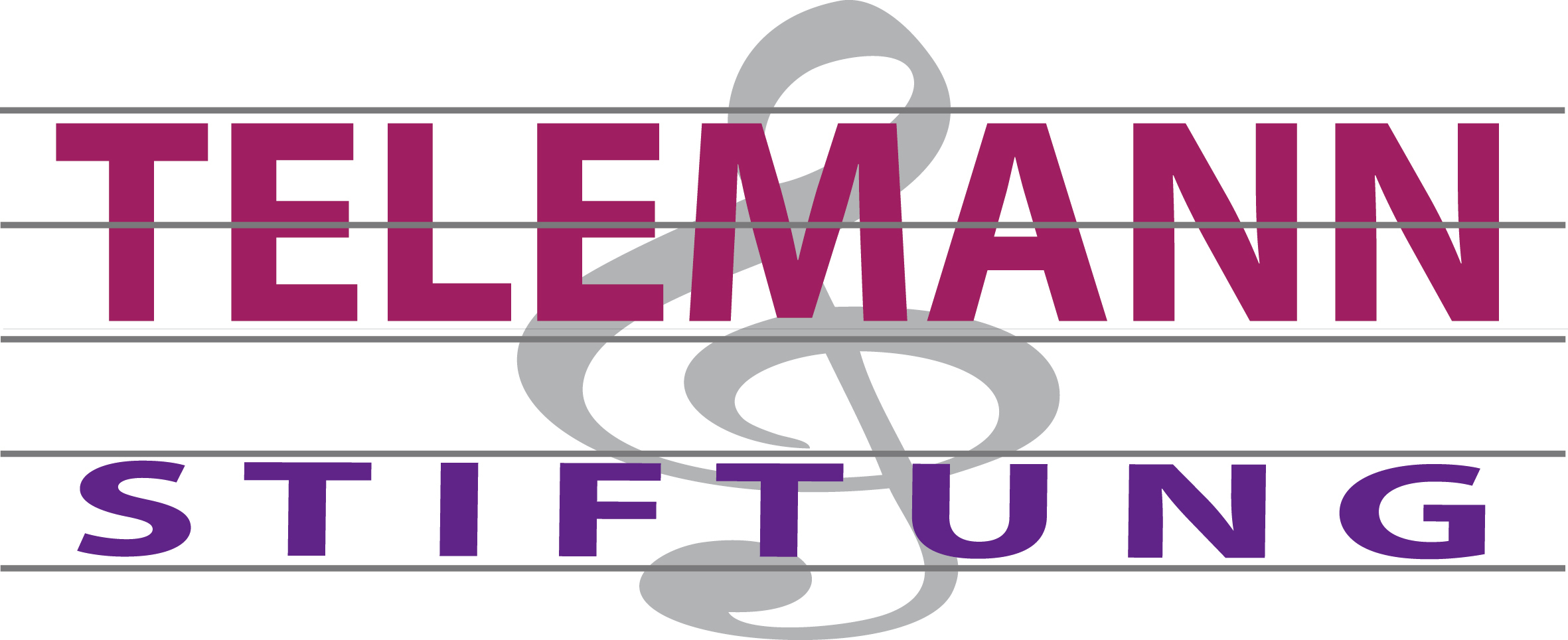
Statutes of the Telemann Foundation
Preamble
The Telemann Foundation was established in 2013 to fund and maintain the Hamburger Telemann Gesellschaft e.V. and its Telemann-Museum, as well as organizations and projects that honor Georg Philipp Telemann, who cultivate his memory or are associated with the composer.
The Telemann-Museum Hamburg was created in 2011 from an initiative of the Hamburger Telemann-Gesellschaft e.V. under the aegis of Erich Braun-Egidius, who also established the foundation. One of the museum's tasks is to impart comprehensive knowledge about the Hamburg "Director Musices," the cantor of Hamburg's five main churches from 1721 to 1767 and director of the Hamburg Opera House from 1722 to 1738. Georg Philipp Telemann was one of the three great German baroque composers of the 18th century and a professed European.
The museum in Hamburg is the first Telemann Museum worldwide. It regards itself as a place of historical preservation of the social living environment of Telemann and his contemporaries in Hamburg. It serves the cultural memory of the composer, one of the formative personalities of Hamburg's music scene.
§ 1
Name, legal form
1. the foundation bears the name
Telemann-Stiftung (Telemann Foundation)
2. It is an unincorporated civil law foundation in the fiduciary administration of Haspa Hamburg Stiftung (from now on referred to as "foundation administrator"). The foundation administrator shall act on its behalf in legal and business transactions. In the internal relationship, the foundation administrator shall be subject to the business of the foundation and these Articles of Association.
§ 2
Foundation purpose
1. the purpose of the foundation is the promotion
- of art and culture
- of scholarship and research
- of education, adult education, and vocational training as well as student assistance.
The purpose of the foundation is to raise funds for other tax-privileged corporations and legal entities under public law, including the Hamburger Telemann-Gesellschaft e.V., for the realization of the purposes as mentioned above.
§ 3
Foundation assets
1. The foundation is endowed with assets, the amount of which is defined in more detail in the foundation's business. The assets of the foundation must be managed separately from the other assets of the foundation manager.
2. The assets of the foundation are to be invested in its portfolio and as profitably as possible.
3. All capital and tangible assets of the foundation's assets can be reallocated for asset management.
4. Donations can increase the foundation's assets from third parties (monetary amounts, rights, and other objects). If donations are not expressly dedicated to the assets, they serve exclusively and directly and promptly the purposes mentioned in § 2.
5) The foundation may allocate all or part of its funds to a reserve fund to the extent permitted under the German Fiscal Code.
6. The realized profits from reallocation may be used for the foundation or allocated to a reallocation reserve fund. The reallocation reserve fund may be used by the resolution of the Board of Directors in favor of the foundation's assets or the pursuit of its purpose.
§ 4
Non-profit status
1) The foundation is selflessly active; it does not primarily pursue its own economic purposes.
2. The funds of the foundation may only be used for the purposes set out in the statutes.
3. No person may be favored by expenses that are alien to the purpose of the foundation or disproportionately high remuneration.
§ 5
Board of Directors
1 The Board of Directors of the Foundation shall consist of at least three and not more than five persons.
2. Ex officio members of the first board are
1. the founder
The founder is entitled to appoint a successor, in particular through a testamentary provision. If the founder does not exercise this right, the remaining members of the board of directors may elect a successor (co-option). The founder is entitled to resign from office at any time.
2. a representative of the foundation administrator
The foundation administrator's representative is not bound to a specific person and is appointed by the foundation administrator. The foundation administrator can be represented by different persons on the board of directors.
3. The board of directors may elect further members, taking into account no. 1 and 2. The term of office of these members is four years, with re-election permissible.
4. The executive board shall consist of persons who have competence concerning the fulfillment of the foundation's tasks. One member should be an expert in financial and economic matters.
5. The executive committee elects a presiding officer and, if necessary, a deputy presiding officer from among its members. Re-election is permissible.
6) The Board of Directors may adopt its own rules of procedure.
7) The members of the board of directors exercise their office on an honorary basis. They are not entitled to reimbursement for their expenses.
§ 6
Duties and resolutions of the Executive Board
1 The Board of Directors decides on the use of the foundation's funds. The foundation administrator has a right of veto against this decision if the use of the funds violates the statutes or legal or tax regulations.
2. The executive board decides on the investment of assets. Three members of the board are jointly authorized to do so.
2. The resolutions of the board of directors are generally made at board meetings. The Board of Directors is convened by the foundation's administrator once a year, or in writing, as required, specifying the individual subjects to be discussed. There should be at least one week between the convening and the day of the meeting unless extraordinary circumstances require a shorter period.
3. The executive committee has a quorum regardless of the number of members present. The executive committee decides with a simple majority of the votes cast unless the articles of association stipulate otherwise. In the event of a tie, the vote of the chairman or, in his absence, the deputy chairman shall decide. Abstentions are considered as votes not cast.
4. The Executive Board shall record its decisions in minutes, which shall be signed by at least one member of the Executive Board and one representative of the foundation's administrator. Members of the Board of Directors who are absent when resolutions are passed will be informed of the resolutions. They do not have the right to object retrospectively.
5. Outside of board meetings, resolutions may also be passed in written circulation by letter, fax or e-mail if each member takes part in the vote.
§ 7
Foundation administrator
1. The foundation administrator manages the foundation's assets separately from her assets. She allocates the foundation's funds following the resolutions of the Board of Directors.
2. Within six months of the end of the financial year, the foundation administrator shall prepare an annual statement of accounts with assets and liabilities and a report on the fulfillment of the foundation's purpose.
3. The foundation administrator is authorized to sign the donation receipts.
§ 8
Costs
1. The expenses charged to the foundation by third parties, i.e., issue surcharges, accounting costs, preparation of the annual accounts and tax returns, custody and account fees, or other fees, are charged to the foundation.
2. The Foundation Administrator herself will not charge an administration fee for the administration of the foundation and the processing of the funding measures.
§ 9
Financial year
The financial year corresponds to the fiscal year of the foundation's administrator. It can be determined otherwise by the foundation administrator.
§ 10
Changes to the Articles of Association
An amendment to the statutes, particularly a clause to the purpose of the statutes, requires a resolution of the Board of Directors and the Foundation Administrator with the competent tax office's approval.
§ 11
Conversion
The trust foundation can be converted into an independent foundation under civil law based on a joint resolution of the board of directors and the foundation administrator with the approval of the responsible tax office.
§ 12
Resolution
1 The Board of Directors and the Foundation Administrator may decide to dissolve the foundation if circumstances no longer allow the foundation to fulfill its purpose on a permanent and sustainable basis.
2. Upon dissolution of the foundation, or if tax-privileged purposes cease to exist, the remaining assets – after deduction of all liabilities – shall be transferred to another tax-privileged corporation or legal person under public law, to be determined beforehand by resolution of the Board of Directors, for use for the promotion of the purposes mentioned in § 2. This corporation shall preferably be the Telemann Museum. It can be used in the field of Georg Philip Telemann research, inventory maintenance, and preservation, preferably in Hamburg.
3. Resolutions on the use of the assets in the event of the dissolution of the foundation or the discontinuation of its tax-privileged purposes may only be implemented after the consent of the competent tax office has been obtained.
